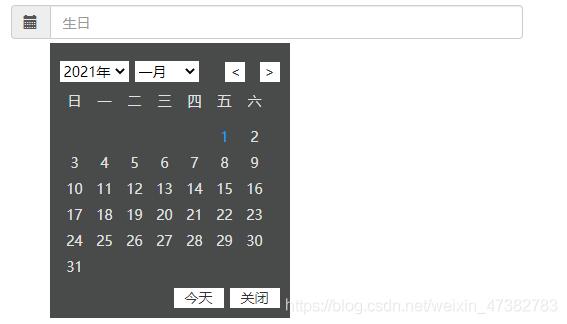默认的模板方式,和vue2差不多,在组件中使用setup函数
// 父组件
<template>
<div>
<div>
<div>{{city}}</div>
<button @click="changeReactive">改变reactive</button>
<button @click="handleFather">点击父组件</button>
</div>
<Child ref="childRef" @handleBtn="handleBtn" @testClick="testClick" city="成都" />
</div>
</template>
<script>
import { ref, onMounted, toRefs, reactive } from 'vue'
import Child from './Child.vue'
export default {
components: {
Child
},
setup () {
const handleBtn = (val) => {
console.log('btn', val)
}
const testClick = (val) => {
console.log('testClick', val)
}
const childRef = ref(null)
const handleFather = () => {
childRef.value.observed.a = 666 //父组件修改子组件的值
console.log('获取子组件的方法', childRef.value)
// 子组件需要定义expose,如果不定义,那么需要返回,相应的函数,一般不直接返回,如果页面上没有用到
//直接通过expose(暴露)需要的方法或者值就行了
}
// 通过setup函数的方法写,需要返回,页面上用到的方法,和值
// 如果是reactve定义的值,通过解构的方式页面上渲染的值不是响应式的,需要通过toRefs转换,然后解构
// ...toRefs(testReactive)
const testReactive = reactive({
city: '北京',
age: 22
})
const changeReactive = () => {
testReactive.city = '重庆'
}
return {
handleBtn,
testClick,
handleFather,
...toRefs(testReactive),
changeReactive,
childRef
}
}
}
</script>
//子组件
<template>
<div>
{{observed.a}}
<button @click="handleBtn">点击</button>
</div>
</template>
<script>
import { defineProps, defineEmits, defineEmit, defineExpose, reactive } from 'vue'
export default {
props: {
city: String
},
/* 设置这个主要是为了,让ctx.attrs访问不到这个属性 */
/* props上设置了有的属性,在attrs上,也不会显示 */
emits: ['testClick'], //设置这个的目的,是为了让attrs上没有对应的自定义方法,
//子组件如果设置了peops,那么在attrs上也访问不到对应的值
//arrts在vue3中功能有所增强,挂载了自定义方法,和class,style
//在vue2中自定义方法是挂载到,$listeners,在vue3中$liseners已被移除
setup (props, ctx) {
const { expose, emit } = ctx
const handleBtn = () => {
console.log('btn', ctx)
emit('testClick', 666)
}
const observed = reactive({
a: 1
})
function clickChild (value) {
observed.a = value
}
expose({
clickChild, //暴露自定义方法,父组件调用
observed// 暴露子组件的值
})
return {
observed,
handleBtn
}
}
}
</script>
在script标签上写setup <script setup>
// 父组件
<template>
<div>
<button @click="handleFather">点击父</button>
<Child ref="childRef" @handleBtn="handleBtn" @testClick="testClick" city="成都" />
</div>
</template>
<script setup>
import { ref } from 'vue'
import Child from './Child.vue'
// 这种方式写不用在return导出页面上用到的方法和值,需要用什么直接在vue上解构出对应的defin
const childRef = ref(null)
const handleBtn = (val) => {
console.log('btn', val)
}
const testClick = (val) => {
console.log('testClick', val)
}
const handleFather = () => {
console.log('获取子组件的方法', childRef.value)
childRef.value.testFatherClick() //父组件调用子组件的方法
// 子组件通过defineExpose暴露出对应的方法
}
</script>
// 子组件
<template>
<div>
<button @click="handleBtn">点击</button>
</div>
</template>
<script setup>
import { defineProps, defineEmits, defineExpose, reactive } from 'vue'
const props = defineProps({
city: String
})
const emit = defineEmits(['handleBtn', 'testClick'])
const handleBtn = () => {
// console.log('btn', props, emit)
emit('testClick', 12)
}
const testFatherClick = () => {
console.log('测试父组件点击子组件')
}
const observed = reactive({
a: 1
})
defineExpose({ //暴露方法给父组价
testFatherClick,
observed
})
</script>
<style scoped>
</style>
通过jsx方式渲染,非常接近react的方式,也是我最推荐的方式,jsx对ts也很支持,.vue文件没有tsx支持得好
// 父组件
import { ref, reactive } from 'vue'
import Child from './Child.jsx'
const Father = {
setup() {
// 在jsx中定义的ref在页面上使用需要通过.value去访问
const city = ref('北京')
const changeCity = () => {
city.value = '杭州'
}
const childRef = ref(null)
const handelFather = (add) => {
//也是通过在组件暴露expose方法
// city.value = '杭州'
console.log('childRef', childRef.value)
}
const testChildClick = (val) => {
console.log('测试子组件点击', val)
}
return () => {
return (
<div>
<div>{city.value}</div>
<button onClick={changeCity}>改变城市</button>
<button onClick={handelFather}>点击父</button>
<Child testChildClick={testChildClick} ref={childRef} />
</div>
)
}
}
}
export default Father
//子组件
import { ref, reactive } from 'vue'
const Child = {
props: {
testChildClick: Function
},
setup(props, { emit, expose }) {
const { testChildClick } = props
const testFatherClick = () => {
console.log('测试父组件点击子组件')
}
const handelBtn = () => {
// emit('testChildClick') //在jsx中这种方式不行
// console.log('props', props)
testChildClick('返回值给父组件')
// 只能通过这种方法,这也相当于react,相当于传递一个函数给子组件,子组件把值,通过函数传给父组件
}
expose({
testFatherClick
})
return () => {
return (
<div>
<button onClick={handelBtn}>子组件传值给父组件</button>
</div>
)
}
}
}
export default Child
总结
到此这篇关于vue3不同语法格式对比的文章就介绍到这了,更多相关vue3语法格式对比内容请搜索NICE源码以前的文章或继续浏览下面的相关文章希望大家以后多多支持NICE源码!







